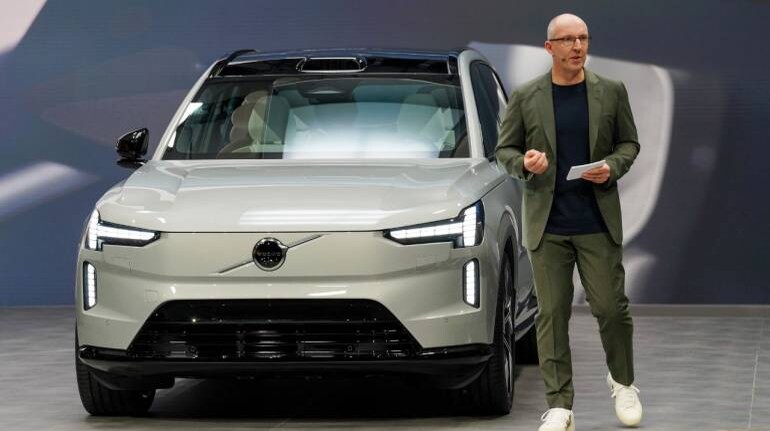



The automotive landscape is constantly changing, and despite a rough few years, the global forecast for the light vehicle market was up 10% in 2023, compared to 2022.
As the market continues to grow, so does the technology powering it. 2024 is set to be a landmark year in automotive technology, and here are some big trends to watch out for in the year.
Electric car batteriesAccording to Times of India, the electric car market grew a healthy 80% in March 2023, with overall sales going up by a staggering 157%. This was partly due to big players like Mahindra and Tata expanding their EV offerings and giving customers more choices across a range of prices.
According to IEA, globally, the EV market saw an exponential growth with sales exceeding 10 million in 2022, nearly 14% of all new cars sold were EVs.
Of course, with EVs gaining so much traction around the world, what about the technology that acts as primary fuel for electric cars, batteries. How will they change?
Engineering.com says that Lithium-ion will continue to remain on top through 2024. The technology in producing these batteries has made great strides in 2023 increasing performance while lowering costs.
This is great but lithium and cobalt, the materials required for these batteries are in short supply. Researchers are already saying the industry is going to start seeing shortages by 2025 if alternatives are not found.
While there are some cases to be made Sodium-ion batteries, it is expected that researchers will continue to look for more alternatives in 2024.
As per GlobalData's patents analytics database, patent filings for car batteries led the list of filings in the automotive tech industry.
Artificial Intelligence in carsThis one is fairly obvious, given the amount of disruption that AI has already caused within industries. AI will possibly affect almost every aspect of the car industry in 2024.
Starting with manufacturing, where AI is expected to disrupt not only design but also power the next evolution of equipment in the manufacturing chain. From uses in testing to software and guidance for the end product, to robots that are used in the building of the cars themselves.
As for software, advances are already being made in advanced driver assist solutions, and better autonomous driving. Safety solutions have also made great strides with advances in driver risk assessment and monitoring.
2024 will continue this trend for more advances in maintenance and customer service applications.
Autonomous and semi-autonomous vehicles2024 has been earmarked for self-driving vehicles to go mainstream. According to management consulting firm, McKinsey, self-driving vehicles can create $300 billion to $400 billion by 2035.
The market is already starting to see hints of customer preference in self-driving cars, and governments around the world are already starting to introduce rules and regulations for driverless cars. Everyone except India.
The Indian government has been opposed to the idea of bringing self-driving cars to our shores for a while now. Union Minister for Road Transport and Highways, Nitin Gadkari has emphatically said that he will "not allow driverless cars in India at any cost" while speaking to Business Today at an event hosted by IIM Nagpur.
As to the why, Gadkari believes that driverless vehicles are, "appropriate only for countries with small populations", and in India, a large part of the population are employed as drivers. Bringing autonomous vehicles into our country will result in around "70 to 80 lakh people losing their jobs".
Cybersecurity for carsWith all the talk of AI and driverless cars, comes the real fear of security and privacy. After all, with the number of data breaches we see each year, you can bet automotive technology will be high on every threat actor's radar.
The more we put computers inside cars, the more they are susceptible to everything that affects PCs worldwide. Another big pain point will be data collection. In an age of cars increasingly becoming connected online, the issue of customer data privacy will also be a big highlight.
There are already some guardrails in place, like governments requiring legal compliance with GDPR standards such as transparent data collection policies which will tell users how much of their data is collected and for what purpose.
2024 will see the development of automated technologies that can detect and respond to threats rapidly, while companies will become more stringent in their security standards for software.

Discover the latest Business News, Sensex, and Nifty updates. Obtain Personal Finance insights, tax queries, and expert opinions on Moneycontrol or download the Moneycontrol App to stay updated!
Find the best of Al News in one place, specially curated for you every weekend.
Stay on top of the latest tech trends and biggest startup news.